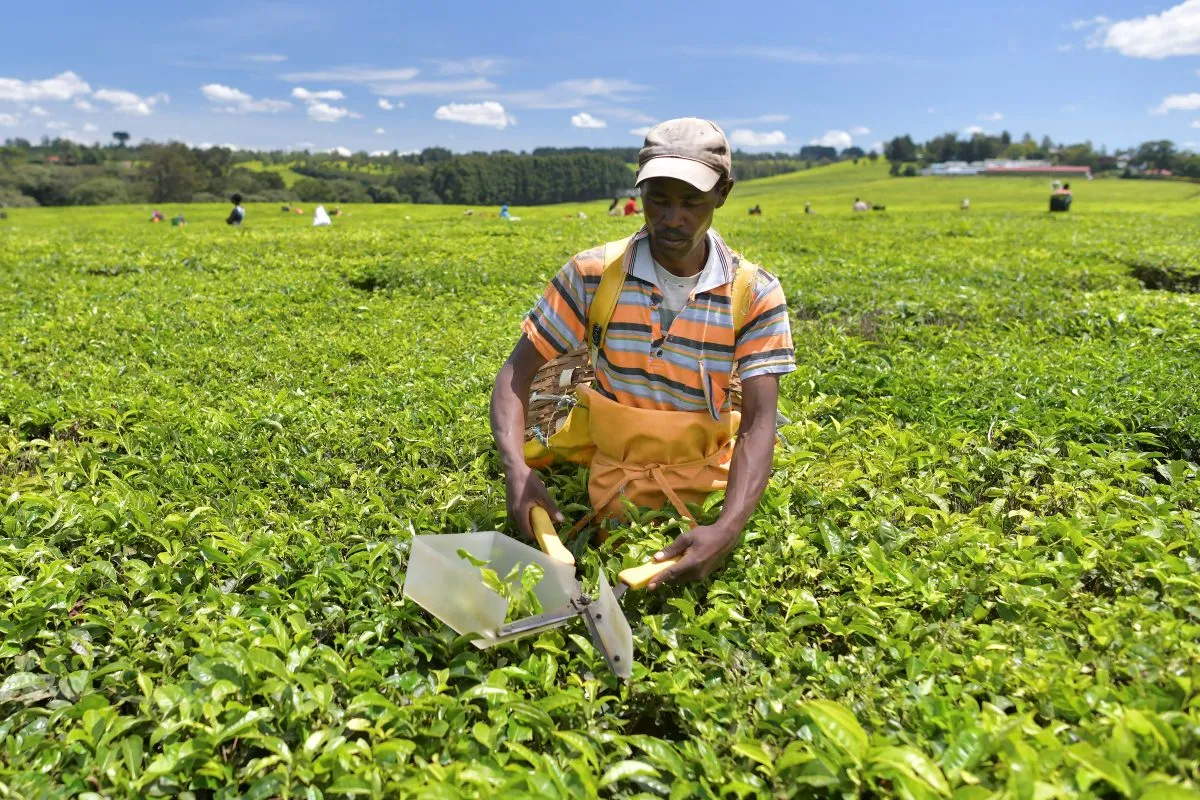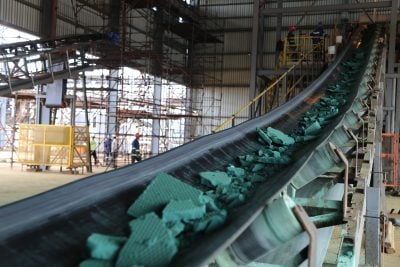Africa’s food sector is at a crossroads. A new continental vision for building resilient and sustainable agrifood systems – the Kampala Declaration – was agreed at an African Union summit of heads of state held in Kampala, Uganda from 9th to 11th of January 2025. The summit endorsed a new 10-year Strategy of the Comprehensive Africa Agriculture Development Programme (CAADP) for 2026 to 2035.
Through the Kampala Declaration, our African leaders committed to take decisive action to address perennial challenges that have led to food insecurity, environmental degradation, high dependence on food imports, vulnerability to climatic and socio-economic shocks, and marginalisation of key groups such as women and youths in our continent.
The Declaration is an ambitious agenda to increase food output by 45%, reduce post-harvest losses by half, and raise the share of locally processed food to 35% of the agrifood sector GDP by the end of 2035. To drive this growth, our leaders in Africa have committed to mobilising a total of $100bn in public and private sector investment and financing in the next 10 years. These interventions are intended to end hunger and reduce malnutrition by 25%, boost intra-African trade, advance inclusivity and equitable livelihoods, and protect at least 40% of households from shocks in the next 10 years.
The African Union Development Agency (AUDA-NEPAD) as the premier development agency for the African Union (AU), has been mandated to lead the implementation of the Kampala Declaration. This role will include supporting AU member states to domesticate this continental agenda and align it with their own national development plans and budget frameworks. Together with my team we will also support and coordinate member states and other key stakeholders in the execution of priority programmes, partnership building, resources mobilisation, knowledge exchange and monitoring and reporting of progress towards the targets.
Urgent need to accelerate implementation
Although this is a role that AUDA-NEPAD has been playing since the inception of the CAADP programme in 2003, the urgent need to accelerate implementation and align with the new Kampala agenda means that we will need to rapidly expand our technical and financial resources to support the execution of the CAADP Kampala agenda. Discussions with key partnerships such as knowledge partners, non-governmental Organisations, private players, farmers representatives, civil society organisations and donor agencies are already under ways to expand existing partners or to build new one required to support the new CAADP agenda.
The Comprehensive Africa Agriculture Development Program (CAADP) has been a pivotal framework for transforming agriculture across Africa since its inception in 2003 with the Maputo Declaration. In 2014, the African heads of state and government reaffirmed their commitment to the CAADP agenda through the Maputo declaration, agreeing to allocate at least 10% of public expenditure to agriculture to achieve a 6% annual growth rate in agricultural gross domestic product (GDP). The 2014 Malabo CAADP Declaration reinforced these commitments and added more ambitious goals and targets to be achieved by 2025, including eradicating hunger, halving poverty, tripling intra-African agricultural trade and building resilience.
CAADP has been perhaps one of AU’s most consequential and far-reaching policy framework. Adopted by nearly all AU member states, CAADP has led the development of robust agricultural transformation policies and plans. After two decades of CAADP implementation, Africa is in a remarkably better position than at the time of the Maputo declaration in 2003. The continent has made enormous progress in terms of economic and agricultural growth, improvement in poverty and nutrition outcomes, expansion of agricultural trade, and public investments in agriculture.
Agricultural public investment has risen to double the levels seen in the 1990s. Increasing investment in agriculture as a driver of transformation is foremost among the objectives of CAADP. In absolute terms, public expenditure on agriculture (PAE) increased from $10.7bn in 2000 to $17bn in 2021. CAADP commitment to triple intra-continental trade in agricultural commodities has contributed to robust growth in intra-regional and global agricultural trade. Between 2003 and 2021, the value of intra-African agricultural trade increased by 175% from $5.4bn to $14.9bn. Currently around 20% of Africa’s agricultural exports are directed within the continent. Africa’s global agricultural exports also increased significantly from $25.3bn in 2003 to $73.2bn in 2021.
From Malabo to the Kampala Declaration
Despite significant achievements, which we thank our partners and stakeholders for, from CAADP implementation in the last 20 years, progress measured against the Malabo targets has been insufficient as revealed by the four biennial review reports presented so far – including the fourth iteration that was presented to the AU Assembly in February 2024. The heads of state and government acknowledged that the continent is not on track to meet the Malabo goals and targets by 2025, underscoring the urgency to develop a post-Malabo CAADP agenda focused on building resilient, inclusive and sustainable agrifood systems over the next CAADP decade (2026-2035).
The roadmap to develop a post-Malabo agenda was launched in March 2024. The African Union Commission (AUC), through its Department of Agriculture, Rural Development, Blue Economy and Sustainable Environment (DARBE) and the African Union Development Agency (AUDA-NEPAD), in collaboration with key technical partners, initiated the process. The roadmap emphasised broad and inclusive stakeholder consultations and thematic analytical studies that involved African and international centres of excellence, state and non-state stakeholders and representatives on farmers.
The new CAADP Strategy and Action Plan (2026-2035) envisions sustainable and resilient agrifood systems for a healthy and prosperous Africa. In line with Agenda 2063, the African Common Position on Food Systems and the COP28 commitments on food systems, it advocates for transformative, holistic approaches that span the entire agrifood value chain, from production to consumption. The strategy integrates economic, social and environmental dimensions to enhance food security, improve nutrition and promote agricultural sustainability, while focusing on strengthening institutional capacity, harnessing technology and diversifying economies through value-added activities and agro-industrialisation that create jobs and improve livelihoods.
Guided by the principles of national ownership, inclusiveness, environmental sustainability and multi-stakeholder coordination, the plan emphasises evidence-based decision-making, mutual accountability and regional cooperation to harness synergies across the continent. Through this integrated framework, CAADP aims to accelerate the transformation of agrifood systems while ensuring equitable benefits for all stakeholders, especially women, youth and vulnerable groups.
Six strategic objectives
The 10-year strategy is organised into six Strategic Objective areas which outline priority intervention areas needed to drive the transformation of agrifood systems – intensifying sustainable food production, agro-industrialisation, and trade; boosting investment and financing for transformation; ensuring food and nutrition security; advancing inclusivity and equitable livelihoods; building resilient agrifood systems; and strengthening agrifood systems governance.
While the Kampala Declaration is a new vision for Africa’s agrifood systems transformation, it largely builds on the lessons and achievements of the Malabo Declaration. Lessons from 20 years of CAADP implementation shape both the approach and substance of the Kampala Declaration and its 10-year Strategy. The Kampala Declaration is premised on the urgent need to accelerate implementation while ensuring continuity, coherence and consistence in the continental agrifood systems agenda.
To ensure the successful implementation of the post-Malabo CAADP agenda, strengthening institutional and human capacities is essential. This includes targeted support to us at AUDA-NEPAD and other AU institutions who have been mandated with leading and coordinating the implementation of Kampala Declaration. A proposed special fund is intended to mobilise significant resources to support implementation at scale. Improving knowledge management and accountability mechanisms is equally critical.
AUDA-NEPAD its partners will pursue the work to strengthen mutual accountability frameworks and enhancing reporting systems, such as the CAADP biennial review process, to enable better tracking of progress and alignment with the agenda’s objectives. These systems will ensure that data-driven insights inform policies and interventions, fostering transparency and building trust among diverse stakeholders.
Follow the roadmap
At AUDA-NEPAD, we have begun the process of developing a roadmap for the domestication of the Kampala Declaration. The roadmap will outline all key steps to be followed, and the main actions involved. To ensure continuity and sustained momentum, the work of engaging with member states to plan for the technical support and coordination required to drive the domestication of the Kampala Declaration at national level continues.
We are pleased that some of the member states have already submitted requests to AUDA-NEPAD for support in revising and reviewing their national agricultural investment plans (NAIPs) to better align with the Kampala Agenda. Preparations are also underway to review existing mutual accountability frameworks such as the Biennial Review process in line recommendations made in the new CAADP Strategy and Action Plan (2026-2035).
The year 2025 is a time for transition and acceleration as we turn the page on Malabo and open a new chapter of the Kampala CAADP agenda.
Want to continue reading? Subscribe today.
You've read all your free articles for this month! Subscribe now to enjoy full access to our content.
Digital Monthly
£8.00 / month
Receive full unlimited access to our articles, opinions, podcasts and more.
Digital Yearly
£70.00 / year
Our best value offer - save £26 and gain access to all of our digital content for an entire year!

 Sign in with Google
Sign in with Google 



